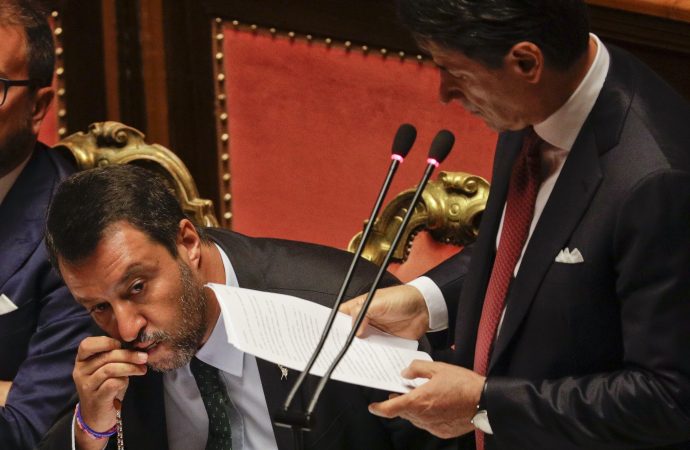I appeared on EWTN News Nightly yesterday to talk about the collapse of the Italian government.
Such turmoil is nothing new in Italy. Discontent with the political class is the main reason there was a populist coalition government in the first place. What made this government unusual was the combination of right- and left-wing populists together. Its failure means that the populist appeal to overcome ideology is not yet mature enough to rule.
Matteo Salvini and the League were initially the junior partner, having won 17 percent of the vote in the last election, with the Five Star Movement winning 38 percent. Those numbers have now flipped, so Salvini made a strategic decision to leave the coalition, causing the prime minister Giuseppe Conte to resign and the government to collapse.
It is widely accepted that the Five Star Movement is not as capable as the League in governing the country. The former will likely form a new government with the Democratic Party, which is also left-wing but very much technocratic and part of the establishment. It will be interesting to see if ideology and their dislike of the League will hold these parties together, or if the populist-elite division breaks up the coalition, resulting in new elections and a likely victory for the League.
In the meantime, while the politicians squabble, the Italian people suffer from a poor economy, crumbling infrastructure, and massive public debt. A taxi driver told me the whole affair was shameful (“vergognosa”). Hard to disagree with him but equally hard to deny that politics and economics are very much intertwined in Italy or anywhere else for that matter.
